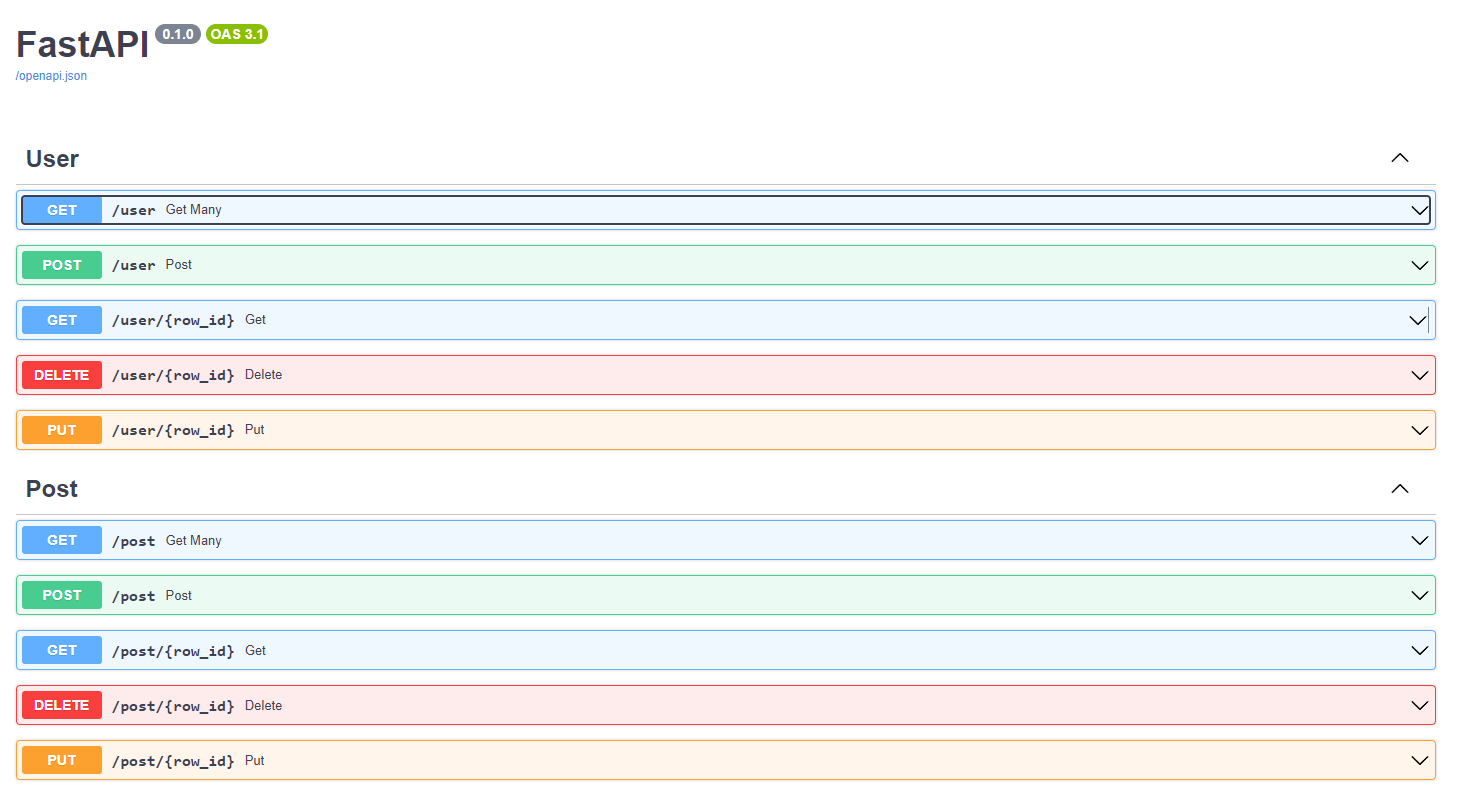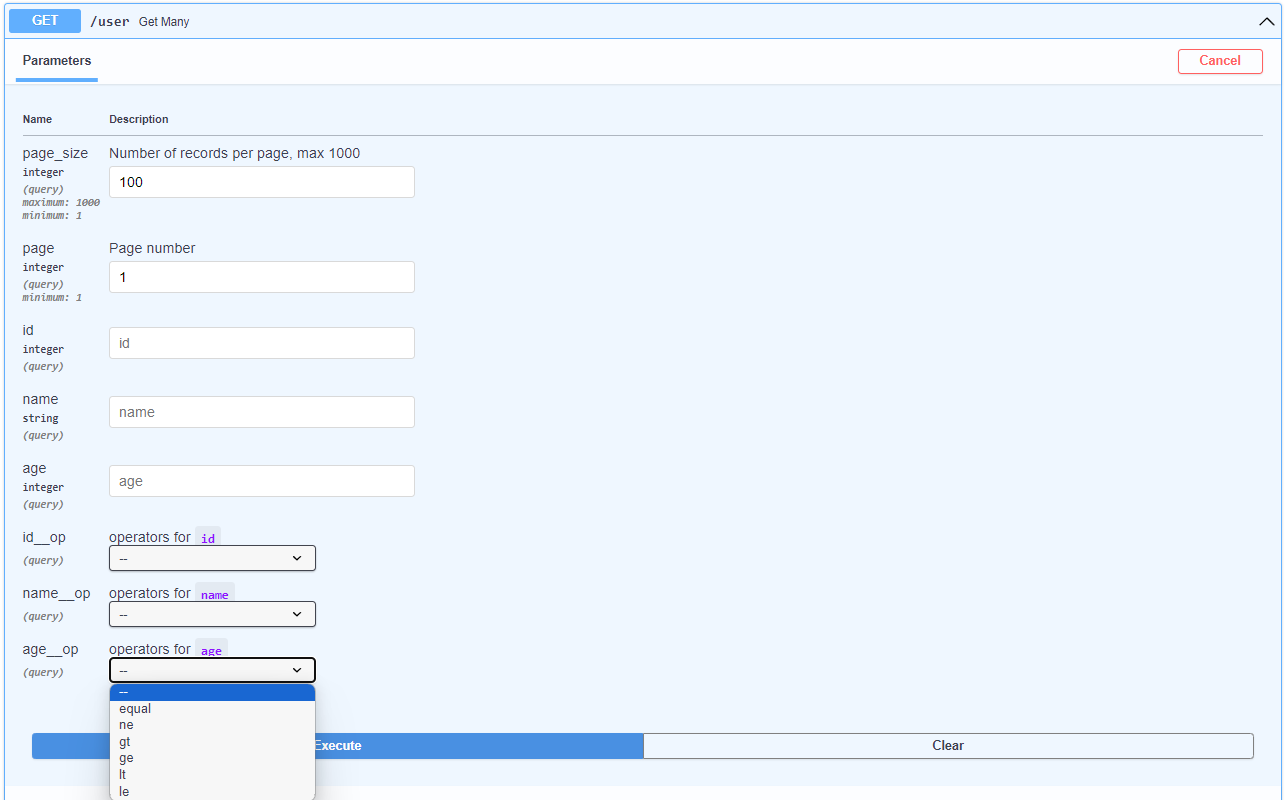Introduction
SQLAlchemy API is a library that helps to turn the SQLAlchemy models into a REST API. It uses the power of Pydantic 2, to validate and serialize the data. This is a framework-agnostic library that can be used with any web framework. Currently, it provides support for Starlette and FastAPI.
Documentation: https://nacosdev.github.io/sqlalchemy_api
Source Code: https://github.com/nacosdev/sqlalchemy_api
Table of Contents
Features
- Mount CRUD endpoints for a SQLAlchemy model.
- Automatic serialization and validation of the data using Pydantic.
- Automatic pagination of the data.
- Allow querying the data using different operators depending on the column data type.
- Support Starlette
- Support Support FastAPI
- Support Blacksheep 🚧
- Support custom queries. 🚧
- Autentication. 🚧
Requirements
- Python>=3.7
- SQLAlchemy>=1.4
- Pydantic>=2
Installation
pip install sqlalchemy-api
Example
Create it
- Create a file
main.pywith SQLAlchemy models and mount the crud using one of the adapters, in this example we will use the FastAPI adapter:
from sqlalchemy_api.adapters.fastapi_crud import APICrud
from sqlalchemy import create_engine, ForeignKey
from sqlalchemy.orm import relationship, mapped_column, Mapped
from sqlalchemy.ext.declarative import declarative_base
from fastapi import FastAPI
from typing import List
Base = declarative_base()
engine = create_engine(
"sqlite:///example.db",
connect_args={"check_same_thread": False},
)
class User(Base):
__tablename__ = "user"
id: Mapped[int] = mapped_column(primary_key=True)
name: Mapped[str] = mapped_column(default="John Doe")
age: Mapped[int] = mapped_column(nullable=False)
posts: Mapped[List['Post']] = relationship(back_populates="user")
class Post(Base):
__tablename__ = "post"
id: Mapped[int] = mapped_column(primary_key=True)
title: Mapped[str] = mapped_column()
content: Mapped[str] = mapped_column()
user_id: Mapped[int] = mapped_column(ForeignKey("user.id"), nullable=False)
user: Mapped['User'] = relationship(back_populates="posts")
Base.metadata.create_all(engine) # Create tables
user_crud_router = APICrud(User, engine)
post_crud_router = APICrud(Post, engine)
app = FastAPI()
app.include_router(user_crud_router, prefix="/user", tags=["User"])
app.include_router(post_crud_router, prefix="/post", tags=["Post"])
You will also need an ASGI server and FastAPI to be able to run this app, both are optional dependencies of SQLAlchemy API:
pip install sqlalchemy-api[fastapi]
Run it
uvicorn main:app --reload
Use it
Endpoints are automatically generated for the defined models and the FastAPI adapter provides automatic Swagger documentation, you can access localhost:8000/docs to interact with them:
SQLAlchemyAPI also provides different operators depending on the column data type, to filter the data:
The data returned is automatically paginated and serialized, including the relationships defined in the models:
Post data is automatically validated and serialized using Pydantic, for example, if you try to create a user wihout the required age field, you will get an error like this:
License
sqlalchemy-api is distributed under the terms of the MIT license.






